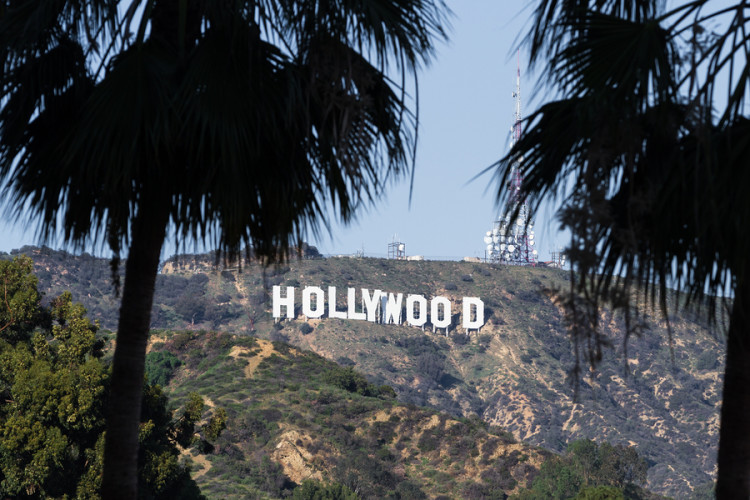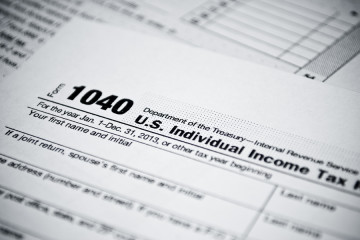Blame Hollywood for President Trump

*thought this may provide an interesting historical perspective*
published Sep 26th 2016, 7:45 am
A week ago, I surprised myself by sitting through the entire Emmy Awards telecast without once switching channels.
I was helped by the sheer quality of the work being honored (I’ve long stopped arguing that TV is merely second-rate movie-making) and by the number of wins racked up by The People v O.J. Simpson: American Crime Story, among the finest series I’ve ever seen.
For days, I basked vicariously in the joy Marcia Clark must have felt, redeemed after 20 years of being vilified as strident and shrill – the very opposite of the woman I found when I met her for a recent profile.
Then something inside me began to change.
Slowly, I started to forget the winners. I lost track of the best and worst moments in the show. I stopped thinking about Sarah Paulson and Courtney B. Vance and John Oliver and Rami Malek and all the others who sizzled and sparkled onstage. Instead, my thoughts kept going back to one image, of one man, sitting smiling in the audience.
That was Mark Burnett, and this weekend I couldn’t forget his beaming face as Jimmy Kimmel joked, in his barbed way, that the reality producer was the man most responsible for the rise of Donald Trump.
“[Wedon’t have to] watch reality shows anymore, because we’re living in one,” quipped Kimmel, as Burnett grinned (rather sportingly, I must admit). “Thank you Mark. Thank you for coming all the way from England to tear us all apart with your intricate plot. It worked… Who do you have lined up to fill the spot on the Supreme Court – Miley Cyrus or CeeLo?”
Kimmel was teasing, of course, but like all good jokes there was a kernel of truth behind the humor.
Without Burnett’s Survivor, we would never have become inured to the kind of dog-eat-dog mentality that has become an accepted social norm; without the reality genre he spawned (or at least lifted to such a prominent level), we would not have grown accustomed to insults as acceptable parlance; and without The Apprentice, Trump himself may well have remained just a figure of fun.
I don’t for a second believe that Burnett ever envisioned Trump in the Oval Office. Nor do I believe the mega-producer alone should be blamed (or praised, if you prefer) for the candidate’s success. But he and other Hollywood kingpins have made a Trump presidency possible.
It’s not just that reality TV has reshaped our view of the world; it’s also that Hollywood’s movies and TV shows have gradually chipped away at our belief in what a political leader should be. And this one-two punch has helped knock us into a whole new political orbit.
Without the (admittedly delicious) dyspepsia of such shows as House of Cards andVeep, voters would not have set the bar for the presidency so low.
Without movies from Being There (1979) to Nixon (1995) to Primary Colors (1998), we might still retain at least an iota of idealism.
Thank Hollywood for turning us all into cynics.
* * *
Way back in the early 1930s – before Franklin Delano Roosevelt had become a political icon, and before William Randolph Hearst had become, well, the opposite – the politician and the publisher were linked by a movie.
Hearst was the backer of Gabriel Over the White House, a 1933 drama starring Walter Huston as President Judson Hammond, who “starts out as a corrupt do-nothing along the lines of Warren G. Harding,” writes Ernie Smith in Atlas Obscura. “But after a car wreck and a coma, Hammond is imbued with the spirit of the archangel Gabriel and miraculously recovers, becoming an FDR-style leader in the process, quickly introducing a series of social welfare programs.”
So far, so good. An archangel in the White House wouldn’t bother even the most atheistic of Hollywood liberals.
But when Congress turns against the president in the movie, the president himself turns against Congress, persuading it to dissolve and leaving him a de-facto dictator. A drive-by shooting leads him to launch a “brown shirt-style police force, blow up an illegal distillery, arrest the gangsters [who oppose him], put them on display in a show trial, and then execute them by firing squad.”
All this the film seems to approve, especially when Hammond forces world leaders to agree to peace on his terms, using the threat of America’s military might. Not long after, writes Smith, “Hammond dies, eulogized as ‘one of the greatest men who ever lived.’ It might take a disturbing amount of authoritarianism, the movie seems to be saying, but, yes, America can be made great again.”
Hearst was no fool, any more than his spiritual ally Trump: He knew the entertainment business had an exceptional ability to shape our view of politics and was happy to us it to advance his ideals. (He was a whole lot less happy when others used the movies against him, and he did everything to kill Orson Welles’ thinly veiled portrait of Hearst in Citizen Kane).
What’s notable about Gabriel is that, criticize Congress as it might, it doesn’t knock the presidency itself. As such, it is part of a long tradition in which Hollywood rarely took on the incumbent or the office he held.
Films such as John Ford’s Young Mr. Lincoln (1939) showed the president as a representative of everything that was best about America. And that notion continued unchallenged for decades.
True, Hollywood could take pot-shots at the establishment (none more directly than Frank Capra’s Mr. Smith Goes to Washington, a 1939 drama in which an idealistic Jimmy Stewart throws down the gauntlet at a corrupt Congress). There were even direct critiques of the presidency, such as Stanley Kubrick’s darkly comic Dr. Strangelove. But by and large, Hollywood supported the status quo.
Until Watergate.
The revelations of Richard Nixon’s criminal actions shifted our view of the presidency, and the film business was quick to follow. Ever since All the President’s Men (the 1976 movie about Bob Woodward and Carl Bernstein’s attempts to get behind the break-in at the Watergate complex), Hollywood has had a schizophrenic view of the White House.
One the one hand, we’ve had such hagiographies as Aaron Sorkin’s The West Wing and Steven Spielberg’s Lincoln. On the other, we’ve had Veep and House of Cards.
But make no mistake: It’s the two latter that are in the ascendant.
A decade since West Wing ended, Hollywood has tipped the scales against the White House. Veep is funny as hell, but nobody would argue it shows the presidency in a positive light. As to House of Cards, its hero has more in common with Macbeth than with Young Mr. Lincoln.
* * *
All of this would be fine, if it weren’t that fiction subtly permeates the way we see the real world.
The writers, producers and directors of these shows might argue that their work reflects real life, rather than the other way around. But there’s an osmosis between the two. Art influences life just as much as life influences art. If it didn’t, what would be the point?
At its best, Hollywood has altered our thinking for the better. Would we ever have had a black president if actors such as Morgan Freeman and Dennis Haysbert hadn’t embodied the commander-in-chief so persuasively onscreen? Would we have had a female president if Cherry Jones and Alfre Woodard hadn’t accustomed us to the idea?
But Hollywood can also tilt us the other way.
It’s one of the supreme ironies that an industry populated by Democrats has laid the groundwork for their party’s possible defeat. If Donald Trump becomes the 45th president, some of the most talented men and women in entertainment should take a good hard look in the mirror.







No Comment